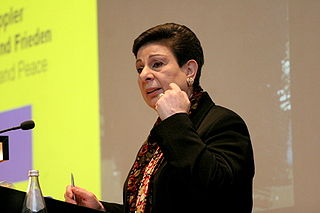A Quote by Paul Henderson
Contentment does not come from achievement.
Quote Topics
Related Quotes
Contentment with life is not a feeling, but it is a decision we must make. Contentment does not mean that we never want to see change or improvement, but it does mean we can be happy where we are and will do the best we can with what we have. It also means we will maintain an attitude that allows us to enjoy the gift of life.
Contentment is the door to god. If one is contented, one has already arrived. And the meaning of contentment is absolute acceptance as you are. Contentment means acceptance, discontentment means non-acceptance. A wants to become B - that is discontent. A is perfectly happy in being A, there is no desire to become B - that is contentment.
When [the saints] perform actions to God, then the soul says: 'Oh! that I could do what pleases God!' When they come to suffer any cross: 'Oh, that what God does might please me!' I labour to do what pleases God, and I labour that what God does shall please me: here is a Christian indeed, who shall endeavour both these. It is but one side of a Christian to endeavour to do what pleases God; you must as well endeavour to be pleased with what God does, and so you will come to be a complete Christian when you can do both, and that is the first thing in the excellence of this grace of contentment.
Perhaps Westerners are in a better position to practice true renunciation than uneducated Orientals because most Western people, by the time they come to the Dharma, have led a pretty full worldly life with lots of sensual pleasures, money and lots of toys to play with. They have seen that the path of accumulation of worldly treasure does not lead to happiness or contentment. That's why they come to the Dharma.




































